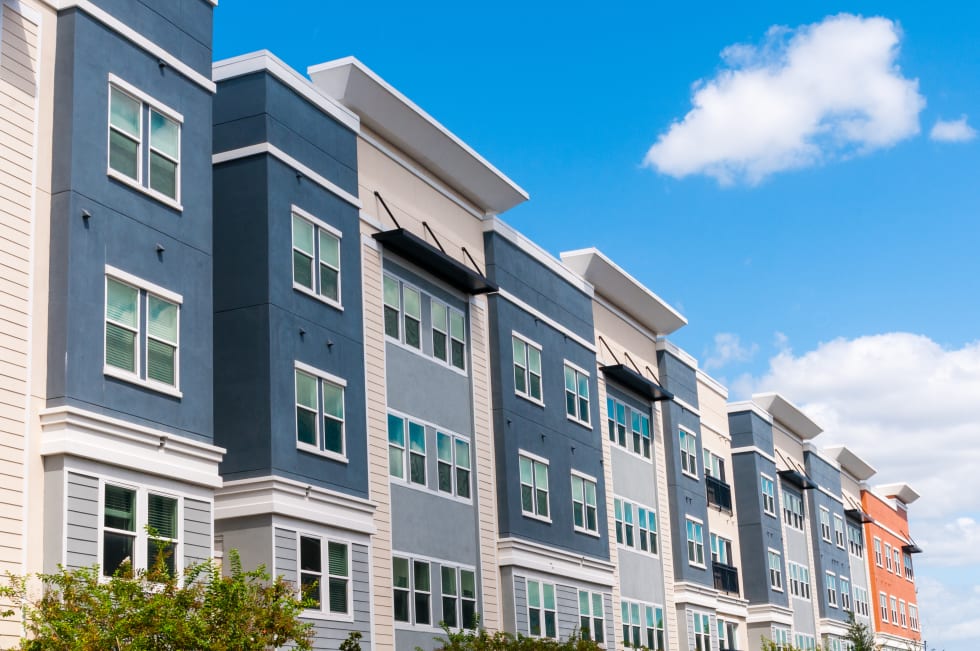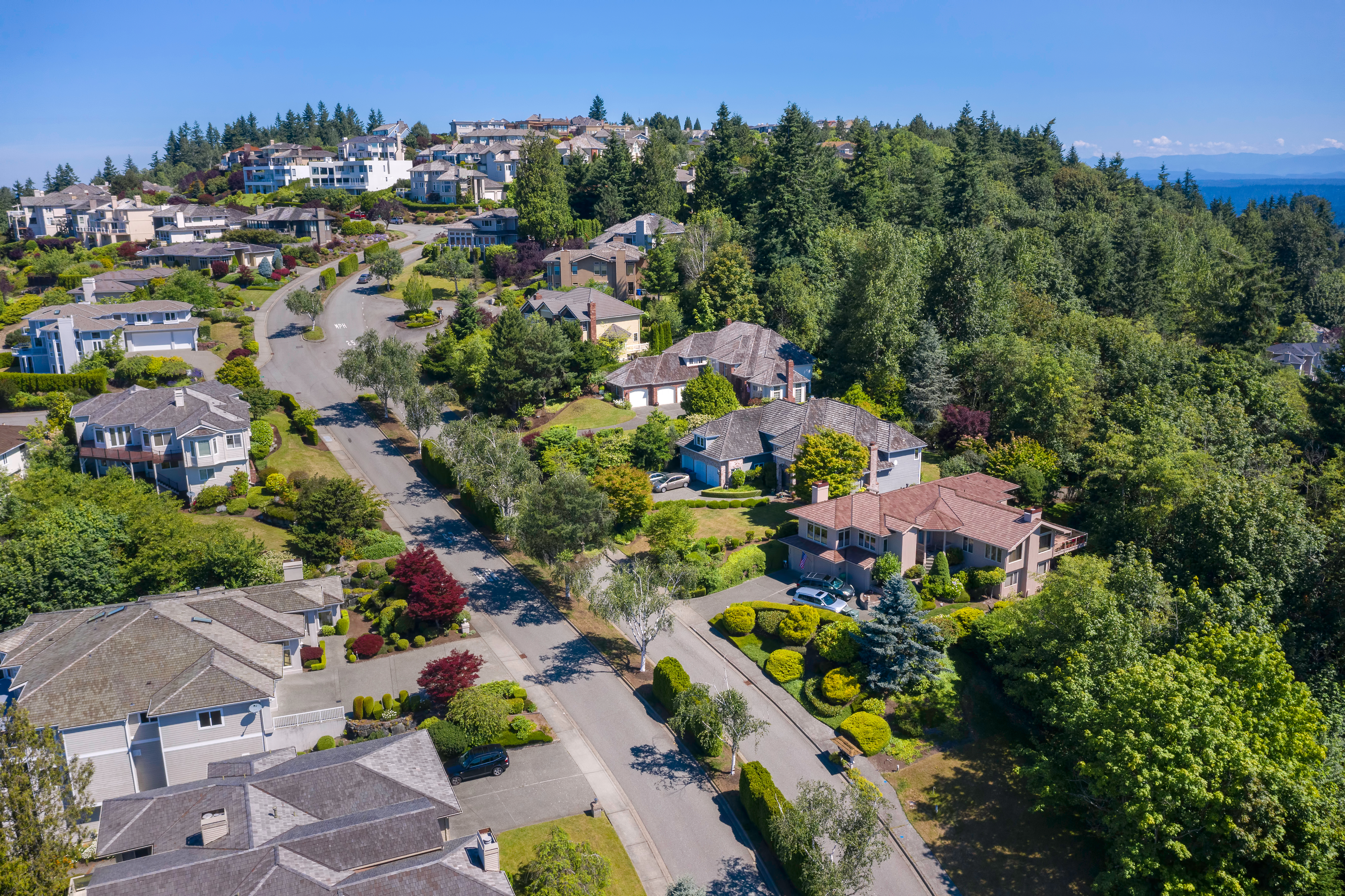Need help learning how to find an apartment? Look no further! Use this guide for help finding the next home of your dreams. Continue to learn more!
It’s easy to get overwhelmed during your apartment search. From where you live to who you live with, and everything in between. However at the end of the day, it’s pretty simple. Knowing how to find an apartment is simply deciding what you want in an apartment. To help you get started, we created a guide to break down everything you need to know about finding an apartment and get the most out of your apartment search.
1. Determine Your Rental Budget
When searching for an apartment, don’t make the mistake of overestimating your rent budget and aim to live comfortably. Be realistic with your budget by following the gold standard of rent budgeting:
“Your income should be at least three times your monthly rent payment.”
If you need help setting a rent budget, just use our rent calculator.
2. Narrow Your Location
Start by narrowing your preferred location down to a city level followed by neighborhoods.
Be sure to consider the location, vibe, and activity level of the neighborhood you choose. These factors will greatly influence how much you enjoy your living situation. You should also consider your commute to work, grocery store, and your favorite nightlife hotspots.
3. Start Your Search Early
Start searching for an apartment 60 days before you move to find the best options, deals, and neighborhoods. Starting your search on the first weekend of the month is usually less competitive with less apartment hunters taking tours.

4. Scour Online Listings
The fastest way to find an apartment is to look online. Use Apartment List’s filters to narrow your focus to specific neighborhoods, amenities, and price points. You’ll find all of the information you need in one place to start booking apartment tours.
5. Stay Proactive Against Rental Scams
Unfortunately, rental scams are a part of apartment hunting and require some due diligence. Common scams include fake listings for places that don’t exist, bait-and-switch, and missing amenities.
Keep an eye out for red flags and never sign a lease or hand over a security deposit without seeing the apartment. Above all else, listen to your gut and stay away from too good to be true deals.
6. Tour Apartments
There’s more to touring apartments than meets the eye. It’s crucial to understand what goes on behind the scenes, as well as getting an in-person look at your apartment. Come prepared with the rental listing and make sure everything is represented correctly. You should also look for existing damage and pay attention to street noise and sound through your walls.

7. Ask Your Future Landlord Questions
Here are some questions to ask your landlord before renting:
- Does the property charge more for pets or parking?
- Is there a one time pet fee or extra deposit?
- Is off-street parking available? If so, at what cost?
- Will I pay for my utility use only, or does the property factor utilities into rent?
- Do I need renters insurance?
- What are the trash collection policies?
Will you pay for your own utility use only, or does the property factor utilities into rent? Bring a list of questions to ask before renting an apartment to be extra prepared during your apartment hunt.
8. Rental Application
If you feel confident that an apartment you’ve toured is a good fit, you can begin the rental application process. Expect to pay around $30 to $50 to apply.
Come prepared with a government-issued ID, landlord references, proof of income, and bank statements. If you’ve never rented an apartment before, ask your boss or a supervisor for a reference.
The landlord or property manager will use your documents in the tenant screening process. If you don’t come prepared and ready to go, the landlord may choose another tenant instead.
9. Start your Move
Moving comes with its challenges, including changing your address, managing utilities, furnishing your apartment, getting your belongings moved over to your new place, and more.
Check out our comprehensive moving checklist to help you stay organized from apartment hunting to get moved in and settled.

Tips for Saving on Your Next Apartment
Regardless of your budget, these cost-saving tips can help you save big while renting.
1. Team Up with a Roommate
The best way to be able to afford a place is to get more people in it. You’re much more likely to find an apartment in your budget if you can split the rent with a roommate.
Not to mention, you’ll also save by splitting things like utility bills and furniture. If you don’t know of any suitable candidates to move in with, use these tips on how to find a roommate.
2. Avoid Popular Moving Seasons
Seasonality affects the rental market and can save a bundle if you’re flexible on when you move. For example, areas that are close to colleges and universities tend to experience the highest turnover of renters between semesters, especially during the summer.
If you time your search right, you’ll find yourself in a much better position for negotiating rent with your landlord.
3. Search for Rent Specials
New apartment properties often offer rent specials to attract new renters. A free month of rent or discounted security deposit are common move-in specials. Some offer additional perks too, like parking spaces and full gyms.

4. Look Into Middle-Floor Units
Rent prices tend to be higher for units that are either on the lower or higher levels of the building. If you’re willing to have a less-than-perfect view and take the stairs/elevator instead of coming in straight off the street, you could save yourself big bucks.
5. Jump on a Great Deal
Most people don’t realize that rent prices often change daily. If you find a place you love and the price works for you, act quick. Let the leasing agent know you’re serious and fill out your application right on the spot!
6. Negotiate on a Fixer-Upper
Consider committing to a cheap apartment that’s under-budget, and make improvements yourself if the landlord won’t cover it. In some situations, the landlord might negotiate rent for you to fix up the place on your own. Your fixes could cost less in the long run than renting a more expensive apartment.
7. Choose Your Amenities Wisely
Most renters prefer having in-unit laundry and living in a nicely upgraded apartment. But choosing between apartment amenities have costs attached to them. You could get a pretty substantial reduction in your rent cost by opting for the lower-tier units.

8. Think about Living Out of the City
In many cases, opting to rent in a city’s suburbs, rather than the city itself, can result in lower rent rates, without giving up proximity to the city.
For example, the median rent rate for a two-bedroom apartment in San Francisco sits at $2,644. A two-bedroom apartment in Oakland, a San Francisco suburb, is a much lower $1,802.
9. Consider Up-and-Coming Neighborhoods
Up-and-coming neighborhoods that recently experienced significant growth or transition usually offer lower rents as the neighborhood becomes more established. But there are downsides. Up-and-coming neighborhoods are often marred by whatever deemed them less favorable in the first place (crime, abandoned buildings, and lack of public transportation.)
Final Thoughts
Finding a new place to live can be a daunting task. However, with a little bit of preparation and organization, you’ll find searching for an apartment and securing a lease can actually be a fun process. Use the tips above and our other apartment guides to learn how to make the most out of your rental journey.
More information: https://www.apartmentlist.com/renter-life/8-tips-finding-apartment-can-afford


Leave A Comment